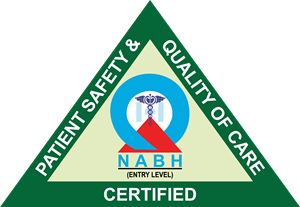How Much Exercise Do You Need?
For most adults, cardiologists recommend,
- At least 150 minutes of moderate-intensity aerobic exercise per week, such as brisk walking, swimming, or cycling OR
- 75 minutes of vigorous-intensity aerobic activity, such as running or fast cycling PLUS
- Muscle-strengthening exercises at least 2 days per week
If you have heart disease or other health conditions, talk to your doctor before starting any new exercise routine.
Best Types of Exercise for Heart Health
Let’s look at heart-healthy workouts that are easy to incorporate into daily life.
1.Walking
- It’s simple, safe, and effective.
- Try walking briskly for 30 minutes a day, five times a week.
2. Cycling
- A low-impact exercise that strengthens your legs and improves heart function.
- Can be done outdoors or on a stationary bike.
3. Swimming
- Great for people with joint issues.
- Works your whole body and heart without putting strain on joints.
4. Jogging or Running
- Excellent for cardiovascular endurance.
- Start slow, and listen to your body.
5. Strength Training
- Builds muscle and improves metabolism.
- Use light weights or resistance bands 2–3 times per week.
6. Yoga
- Improve flexibility, reduce stress, and support heart health.
- Great options for beginners or older adults.
Tips for Getting Started
- Start slow If you’re new to exercise, begin with 10–15 minutes a day and gradually increase.
- Choose what you enjoy You’re more likely to stick with an activity you love.
- Be consistent Make physical activity a regular part of your routine.
- Listen to your body Stop if you feel chest pain, shortness of breath, dizziness, or fatigue.
- Stay hydrated Drink water before, during, and after your workout.
You don’t need to be a marathon runner to protect your heart. Even small changes—like walking more or dancing at home—can make a big difference. The most important step is simply to start moving’.
Remember: Exercise is not just a lifestyle choice. It’s a form of medicine—and your heart deserves the best care you can give it.
Take the First Step Toward a Healthier Heart
If you’re unsure how to start a heart-healthy exercise routine or want personalized advice, our expert cardiologists at Jinkushal Cardiac Care Hospital are here to help.
Your Heart Deserves The Best Care
Jinkushal Cardiac Care Is Your One Stop Solution For All Your Heart Related Problems
Dr. Mayur Jain: Leading Interventional Cardiologist in Thane at Jinkushal Hospital, Thane
At the forefront of cardiac care in Thane, Jinkushal Hospital stands out as a premier Heart Specialist Hospital in Thane, offering a spectrum of advanced cardiac treatments and tests. Leading our team of esteemed cardiologists is Dr. Mayur Jain. Dr. Jain’s expertise in cutting-edge procedures like the TAVI Procedure in Thane has been instrumental in transforming the lives of numerous heart patients.
Jinkushal Hospital is equipped to perform critical cardiac procedures with precision and care. Our state-of-the-art facility is known for conducting detailed Angiography in Thane, a vital diagnostic tool in identifying heart issues. Furthermore, we specialize in Angioplasty in Thane, a life-saving procedure to open blocked arteries, reducing the risk of heart attack.
For patients requiring rhythm management, our Pacemaker Implantation in Thane service is top-notch, ensuring enhanced quality of life. Additionally, our diagnostic capabilities, including the 2D Echo Test in Thane and the Stress Test in Thane, provide comprehensive evaluations of heart health.
Jinkushal Hospital , stands in the list of Hospitals in Thane , Offer all types of Emergency Services like Cardiac Arrest , Heart Valve Replacement Surgery , Open Heart surgery Knee Replacement Surgery , Hip Replacement Surgery , Cosmetic and Plastic Surgery , Pulmonary Care and more.
If you are looking to the Cost of following service or surgeries in Thane then feel free to Contact Jinkushal Hospital.
At Jinkushal Hospital, one of the Top Hospital in thane under Dr. Mayur Jain’s guidance, our commitment to excellence in Cardiac Hospital in Thane is unwavering. We blend expertise, technology, and compassionate care to ensure the best outcomes for our patients.


